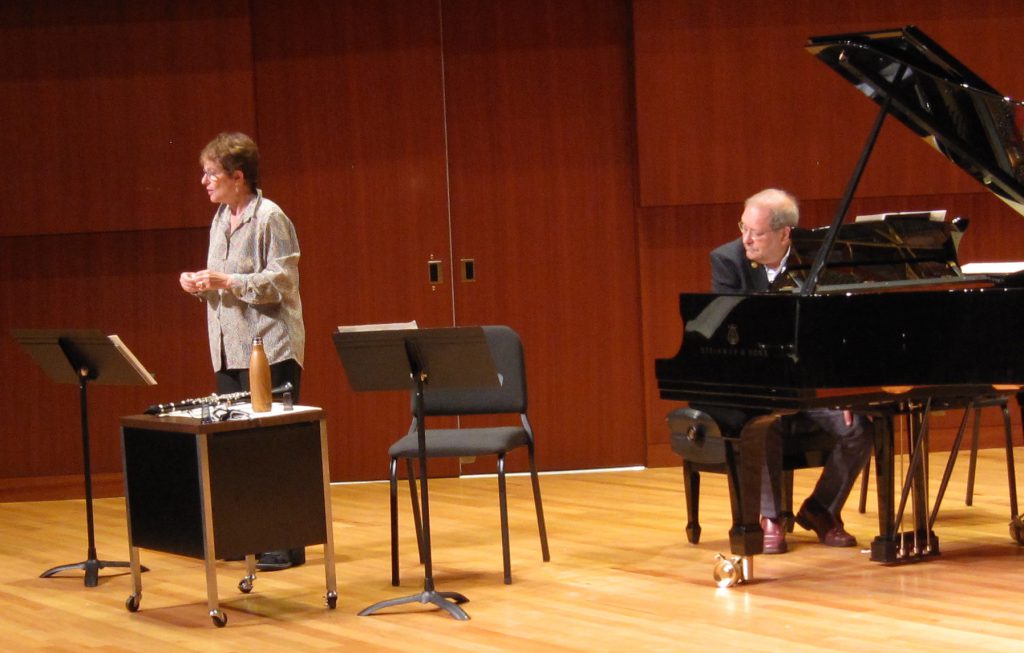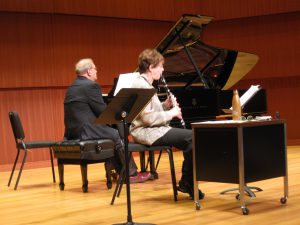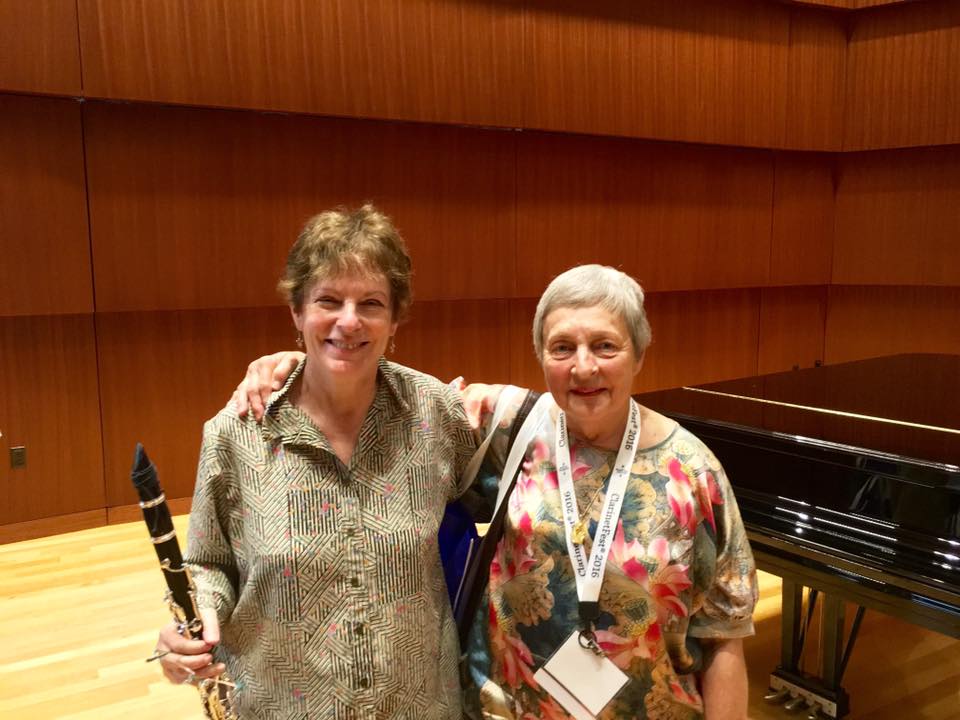
Michele Zukovsky and Steven Harlos
Report by Jacob Lee
At 11:30 a.m. on Thursday, Michele Zukovsky presented “Simeon Bellison – An Inspiration and Continuing Legacy,” a personable exploration of the teaching philosophies of the influential Simeon Bellison and his “most talented student” Kalman Bloch (Zukovsky’s father). Zukovsky and pianist Steven Harlos, the accompanist for all of the live music portions of the lecture, took to the stage as the audience enjoyed a recording of Bellison from 1920 played through the hall’s sound system. The talk opened with a discussion of Bellison’s origins in Russia as a child prodigy and acclaimed musician, having held the most prestigious position of first clarinet in the St. Petersburg Orchestra. Eventually he immigrated to the United States along with his chamber group Zimro, shortly afterwards establishing a studio in the Bronx and becoming principal clarinetist of the New York Philharmonic.
Explaining his approach to music, Zukovsky emphasized Bellison’s heavy focus on phrasing. He would painstakingly write in all of the dynamic shaping for any piece he studied to make it his own – creating a story that would allow him (and his students) to play with conviction. The performers on stage preceded to display this approach with a sensitive interpretation of the “Lento” variation from Weber’s Variations on a Theme from Silvana.

Michele Zukovsky and Steven Harlos
The pair also presented two arrangements by Bellison. The first, a Hasidic dance, comes from a set of transcriptions of Jewish music. (Bellison was of Jewish heritage himself.) The second was an arrangement of Rimsky-Korsakov’s Oriental Song. Zukovsky also revealed plans to publish Bellison’s various transcriptions, an announcement which received much applause from the room. Afterwards, she directly compared the teaching styles of Bellison and her father Bloch (who was, of course, her teacher).
Bellison was notably strict about the lesson structure, though was very amicable and even served his students hot tea. However, he never played his clarinet for his students, actually being quite secretive about it. By contrast, Zukovsky initially learned to play clarinet from Bloch through frequent exposure to his sound and teaching others during her childhood. She even related the story of the first time she tried to tackle the instrument, which impressed her father so much that he had to ask, “What mouthpiece are using?” The audience got a big kick out of that story!
There were a number of great personal stories told about both Bellison and Bloch during the course of the presentation. Admittedly, my favorite might be Zukovsky trying to sneak the good reeds from her father’s stash, replacing them with not-so-good reeds. In summarizing her comparison of the two men, Zukovsky concluded that they shared one important commonality in their methodology – an insistence to impress upon their students how to act respectfully and to treat their colleagues nicely. The event ended with a final arrangement, which Bellison apparently carried around with him, along with his clarinet, everywhere he went.

Michele Zukovsky and Elsa Ludwig-Verdehr, the “Queens of the Clarinet”
Photo by David Blumberg
Jacob Lee received his masters from The Ohio State University and currently works as a freelance performer in the Columbus, OH area. Offstage, Lee has presented original research on French classical-era clarinet works at various gatherings including the American Musical Instrument Society Conference and the ICA Mid-America Festival.
Comments are closed.